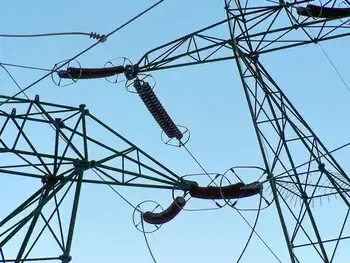TVA admonished over high rates
The Southeastern Power Users Group, which represents about 72 TVA industrial customers, is concerned about upcoming changes planned by TVA. In April, the federal utility plans to change its wholesale rate structure to be more closely tied to the cost of producing electricity, which could encourage companies to switch power use to periods of lower demand. Plus, TVA plans a 1 percent increase in its wholesale electric rate this month.
Paul Holland, executive director of Southeastern Power Users Group, said the organization is concerned the moves will drive up industrial power rates, which it contends are already high and driving away industry and jobs.
"In the six-year period from 2004 to 2010, TVA has come from a position of providing some of the most favorable industrial rates among U.S. electric utilities to having these same industrial rates double for a number of industries throughout the Tennessee Valley," Holland said in an e-mail statement.
Asked during a December meeting with the News Sentinel editorial board to respond to the group's claims, TVA President and CEO Tom Kilgore said TVA industrial rates have risen over the years but still are relatively low.
"When I got here in March 2006, I will admit that we had some industrial rates that were very, very low and as we looked around and tried to make sure that everything was fair, the only way we could make sure of that is for everybody to pay their fair share," Kilgore said. "And so our industrial rates have changed a lot, but I think, comparatively speaking, we're still not uncompetitive to the surrounding states. It's the rate of change that feels bad."
Holland said his group calculates TVA industrial rates have risen 17 percent over six years, "which is worse than ridiculous."
"These absurd rate increases have certainly been a factor in the Tennessee Valley losing over 80,000 manufacturing jobs since 2003," he said.
Holland cites the closings of the Bekaert Steel plant in Dyersburg, Tenn., the Russell Stover plant in Cookeville, Emerson Electric closing its operation in Paris, Tenn., and others as examples of companies that have left the TVA service area.
Two sources of independent data on electrical power rates indicate TVA rates are a bit above average for the nation. Brubaker & Associates, a consulting firm that also produces energy market studies, does a survey of 30 major electric power suppliers across the United States.
Brubaker's October survey found a TVA industrial customer with a 50,000-kilowatt demand and 90-percent power factor paid 6.11 cents per kilowatt hour compared to a national average of 5.88 cents.
By comparison, that type customer paid 7.19 cents per kilowatt hour under Georgia Power Co., 5.21 cents under Alabama Power Co., 7.23 cents under Mississippi Power Co. and 4.70 cents per kilowatt hour under Louisville Gas and Electric Co. The lowest rate for an industrial customer was 4.38 cents per kilowatt hour under Duke Energy of South Carolina and the highest was 8.65 cents under Progress Energy Florida Inc.
Another view of industrial rates comes from the U.S. Energy Information Administration, which compiles a yearly survey of the average industrial price of electric power by state. Since TVA supplies power to most of Tennessee but also parts of six other states, EIA figures would not give exact information about TVA but provide a general idea of how TVA compares to other power providers.
According to the EIA, industrial customers in Tennessee paid an average of 6.29 cents per kilowatt hour each month for electric power during 2009. This compares to 6.67 cents per kilowatt hour for industrial customers in Georgia, 5.54 cents for North Carolina customers, 6.11 cents for Alabama and 4.82 cents per kilowatt hour for industrial customers in Kentucky.
In another ranking of industrial power rates by state, Brubaker & Associates surveyed industrial power rates by investor-owned utilities during 2009. Tennessee ranked in about the middle, with an average 5.65 cents per kilowatt hour for the year. The highest industrial rate was 15.39 cents per kilowatt hour in Maine and the lowest was 4.21 cents per kilowatt hour in South Dakota.
Related News

Ukraine Leans on Imports to Keep the Lights On
UKRAINE - Russia's ongoing war in Ukraine has extended far beyond the battlefield, with critical infrastructure becoming a target. Ukraine's once-robust energy system has sustained significant damage from Russian missile and drone strikes. To cope with these disruptions and maintain power supplies for Ukrainian citizens, the country is turning to record-breaking electricity imports from neighboring European nations.
Prior to the war, Ukraine enjoyed a self-sufficient energy sector, even exporting electricity to neighboring countries. However, targeted attacks on power plants and transmission lines have crippled generation capacity. The situation is particularly dire in eastern and southern Ukraine, where ongoing fighting has…





